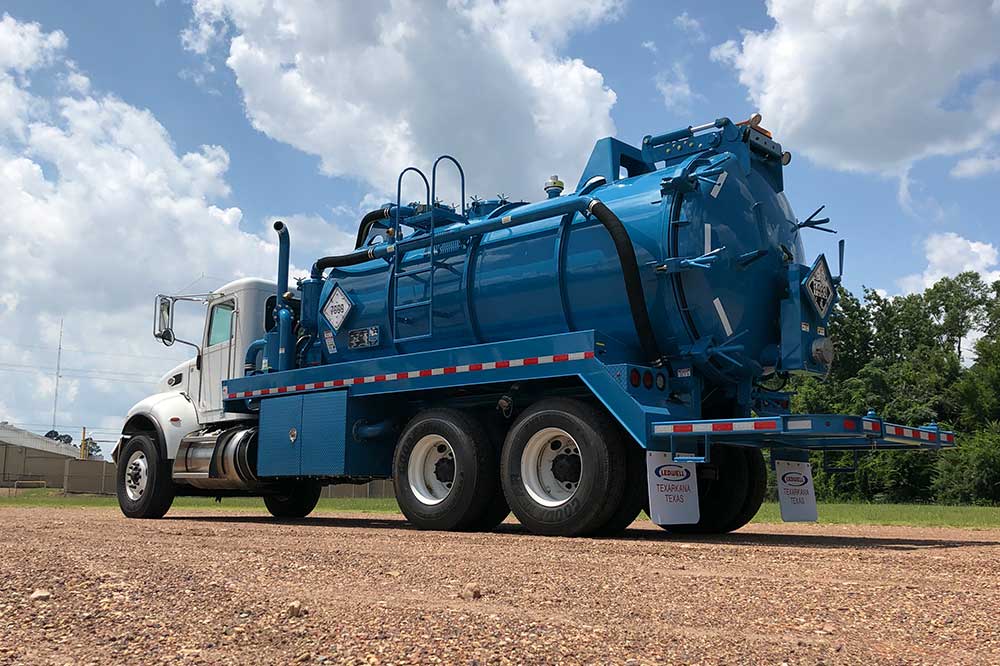Home » Tanker Trucks
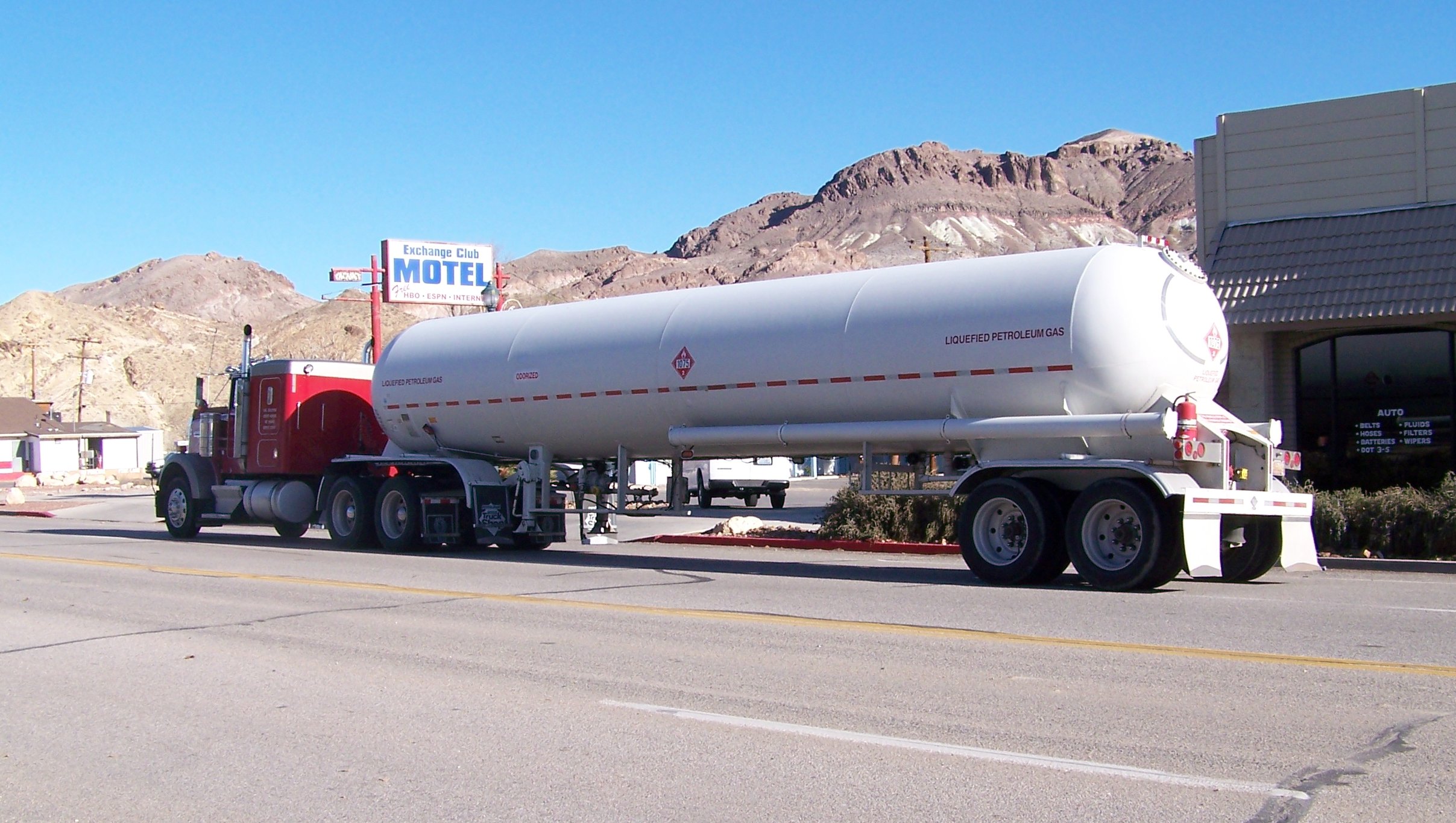
Hoses & Fittings For Tanker Trucks
Tanker Trucks: Unmatched Versatility for Liquid Transportation
Tanker trucks are vital in industries where the efficient transportation of liquid and gaseous substances is critical. From delivering fuel to gas stations to transporting milk from farms to processing plants, tanker trucks offer unmatched reliability and versatility. They are specifically engineered to meet the stringent safety and operational requirements associated with transporting bulk liquids.
At Ontario Hose, we specialize in providing high-quality tanker truck solutions tailored to the unique needs of various industries. Whether you need petroleum transportation or a customized solution for handling food-grade liquids, our expertise ensures you get the perfect fittings and assemblies for the job.
What Are Tanker Trucks?
Tanker trucks, also known as tank trucks, are vehicles equipped with large cylindrical containers designed to carry liquids or gases. These tanks are typically mounted on a truck chassis, ensuring mobility and easy transport across short and long distances.
Types of Tanker Trucks
The versatility of tanker trucks comes from their ability to handle a wide range of liquids and gases. Here are the main types:
Petroleum Tankers
Designed for transporting gasoline, diesel, and other fuels, petroleum tankers are equipped with safety features to handle flammable liquids. These trucks are crucial for ensuring a consistent fuel supply to gas stations and industries.
Chemical Tankers
Chemical tankers are built with materials resistant to corrosive substances like acids, alkalis, and solvents. They often feature pressurization systems and safety measures to transport hazardous chemicals securely.
Food-Grade Tankers
These tankers are specially designed to carry consumable liquids such as milk, juice, and oils. They adhere to strict hygiene standards, ensuring the transported products remain uncontaminated.
Water Tankers
Used for transporting potable and non-potable water, water tankers play a critical role in agriculture, construction, and disaster relief.
Gas Tankers
These trucks are designed to carry liquefied or compressed gases like propane and natural gas. They feature reinforced tanks and advanced monitoring systems for safety.
Industries That Rely on Tanker Trucks
Tanker trucks serve a broad spectrum of industries, including:
- Fuel & Energy Sector: Delivering petroleum products to fueling stations and industries.
- Food & Beverage: Ensuring safe transportation of liquid food items.
- Chemical Manufacturing: Moving raw materials and finished products safely.
- Construction: Supplying water for concrete mixing and dust suppression.
- Emergency Services: Providing water and fuel in disaster-stricken areas.
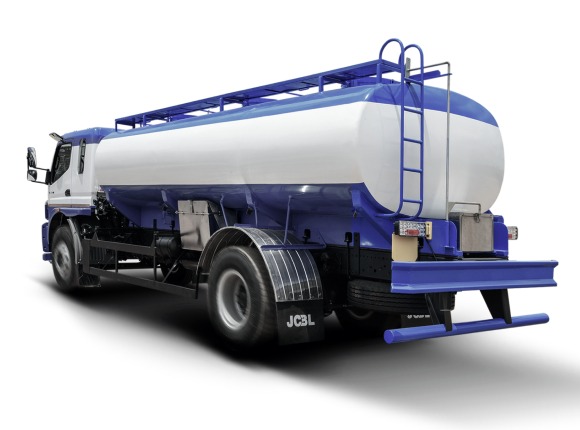
Hoses for Petroleum Tank Trucks
Petroleum tank truck hoses are specially designed to handle the unique demands of transferring fuels and other petroleum products. They must be resistant to the chemicals in the fuel, capable of handling high pressure, and able to withstand environmental factors such as extreme temperatures.
Types of Hoses:
- Rubber Hose: Commonly used for general transfer of petroleum products. It is resistant to oils, fuels, and harsh chemicals.
- Composite Hose: A flexible and lightweight hose constructed from multiple layers of materials, including polypropylene, steel, and polyester. It offers better resistance to kinks, abrasion, and chemical attack.
- Corrugated Steel Hose: A more durable hose made of stainless steel, used in high-pressure and high-temperature applications.
Safety Features
Due to the hazardous nature of petroleum transport, the following safety features are essential:
- Static Grounding: Hoses and fittings must have static grounding systems to prevent sparks that could ignite flammable vapors.
- Fire-Resistant Materials: In some cases, the hose may need to be fire-resistant, especially if used in environments where fire risk is high.
- Pressure Relief Valves: These valves are designed to release pressure from the system if it exceeds safe levels, preventing hose or tank rupture.
Hoses and fittings for chemical tank trucks require even more specific considerations than those used for petroleum products due to the diverse range of chemicals transported and the potential hazards associated with these materials. Chemical tank trucks often carry aggressive, corrosive, or reactive substances, meaning that both the hoses and fittings must be specially designed to handle these challenges. Below is an overview of what is required when selecting hoses and fittings for chemical transport.
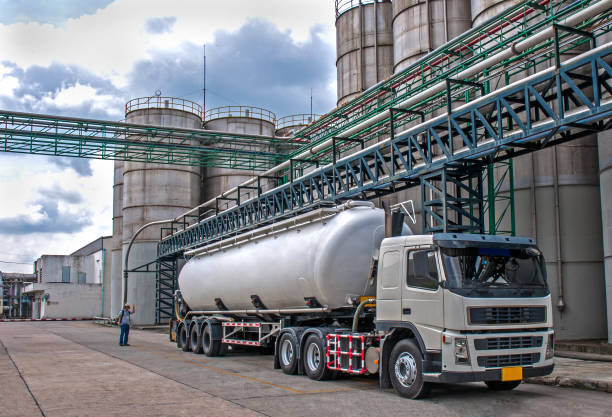
Hoses for Chemical Tank Trucks
Chemical tank truck hoses must be resistant to a wide variety of chemicals, including acids, alkalis, solvents, and other hazardous liquids. They are typically constructed using materials that provide both chemical resistance and durability.
Types of Hoses:
- Rubber Chemical Hoses: These hoses are made from synthetic rubber compounds that are tailored to resist specific chemicals. These are often used for moderate-duty chemical transfers and offer flexibility and high abrasion resistance.
- Composite Hoses: Composite hoses, which are multi-layered and made of materials like polypropylene, PTFE (Teflon), or fluoropolymers, are commonly used for chemical transport. They offer great flexibility, resistance to a wide range of chemicals, and are lighter than traditional rubber hoses. These hoses can often handle more aggressive chemicals, including acids and solvents.
- PTFE Lined Hoses: PTFE (Polytetrafluoroethylene) is known for its extremely high chemical resistance, and hoses lined with this material are used to transfer highly corrosive or reactive chemicals, such as acids, solvents, or even certain bases. The outer layer is typically made of steel or other materials for additional strength.
- Corrugated Stainless Steel Hoses: Stainless steel braided or corrugated hoses are used when high-pressure transfer is needed, and for chemicals that might not be well-suited for rubber or composite hoses. The corrugated design provides flexibility while the stainless steel braid offers additional strength and pressure resistance.
Safety Features for Chemical Transport
Chemical tank trucks must meet strict safety regulations to prevent accidents and minimize risks associated with transporting hazardous materials. Key safety features include:
- Emergency Shutoff Valves: These valves automatically close if a hose is disconnected improperly or if the system detects an unsafe pressure condition.
- Grounding Systems: Many chemicals can generate static electricity, which can lead to sparks and fires. Grounding the hose and fittings ensures that static electricity is safely discharged.
- Overfill Protection: To prevent spills during loading and unloading, chemical tank trucks often include overfill protection systems that stop the flow of liquid once the tank is full.
Hoses and fittings for chemical tank trucks require even more specific considerations than those used for petroleum products due to the diverse range of chemicals transported and the potential hazards associated with these materials. Chemical tank trucks often carry aggressive, corrosive, or reactive substances, meaning that both the hoses and fittings must be specially designed to handle these challenges. Below is an overview of what is required when selecting hoses and fittings for chemical transport.
Hoses for Food Tank Trucks
The hoses used for transporting food products must meet strict FDA, USDA, and EFSA (European Food Safety Authority) regulations to ensure they are safe for food contact. These hoses must be designed for ease of cleaning, maintaining hygiene standards, and preventing contamination.
Types of Hoses:
- Rubber Food-Grade Hoses: These are often used for general food liquid transfers, such as milk, fruit juices, and wine. Rubber food-grade hoses are typically reinforced with a steel wire braid or spiral for pressure resistance. The inner tube is made from a rubber compound that is safe for food contact.
- PVC Food-Grade Hoses: Polyvinyl chloride (PVC) hoses are often used in food transfer applications because they are lightweight and flexible. PVC hoses are also resistant to many food acids and chemicals, and they are commonly used for non-oily products like fruit juices or water.
- Polyurethane Hoses: These are often used for transporting oils, fats, or other sticky or viscous products. Polyurethane hoses provide good abrasion resistance, smooth inner surfaces for easy flow, and are resistant to chemical degradation, making them suitable for a wide range of food products.
- Silicone Hoses: Silicone is highly resistant to temperatures and is non-reactive, making it a common choice for products that require heat during transport or are prone to spoilage. Silicone hoses are also flexible, easy to clean, and resistant to bacterial growth.
- Stainless Steel Hoses: These are used for food products that may require higher temperatures or more extreme conditions. Stainless steel hoses are used in high-pressure applications or for the transportation of products like oils and sauces, where high strength and durability are required.
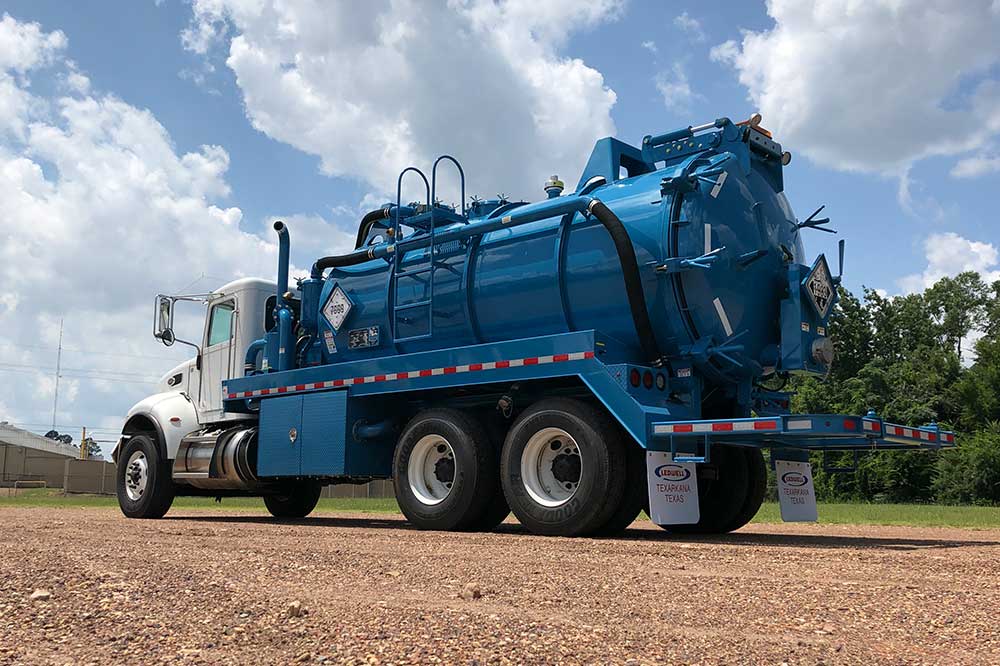
Safety Features for Chemical Transport
Due to the importance of maintaining food product quality and safety during transport, certain features are required:
- Leak Prevention: Fittings should have reliable seals to prevent any leakage of the transported food products. Leaks can lead to contamination, spoilage, or loss of product.
- Hygienic Design: The design of both the hoses and fittings must minimize areas where bacteria or contaminants could accumulate. This includes features like smooth surfaces and easy-to-clean components.
- Pressure Relief Valves: Pressure relief valves can prevent over-pressurization during loading and unloading, reducing the risk of hose rupture or valve damage.
Hoses and fittings for chemical tank trucks require even more specific considerations than those used for petroleum products due to the diverse range of chemicals transported and the potential hazards associated with these materials. Chemical tank trucks often carry aggressive, corrosive, or reactive substances, meaning that both the hoses and fittings must be specially designed to handle these challenges. Below is an overview of what is required when selecting hoses and fittings for chemical transport.
Contact Ontario Hose for Your Petroleum, Chemical or Food Tank Needs
Ensure the safety, efficiency, and compliance of your petroleum, chemical, food and beverage operations with high-quality hoses and fittings from Ontario Hose. Whether you need a standard hose or a custom solution, we’re here to help.
Contact Us Today
To learn more about our food hose products and discover how Ontario Hose can support your business. With our expertise and commitment to quality, we’ll help you keep your operations running smoothly and safely.
